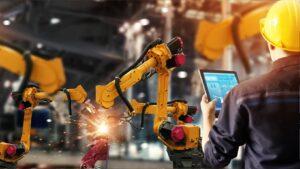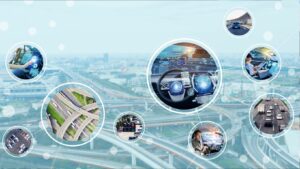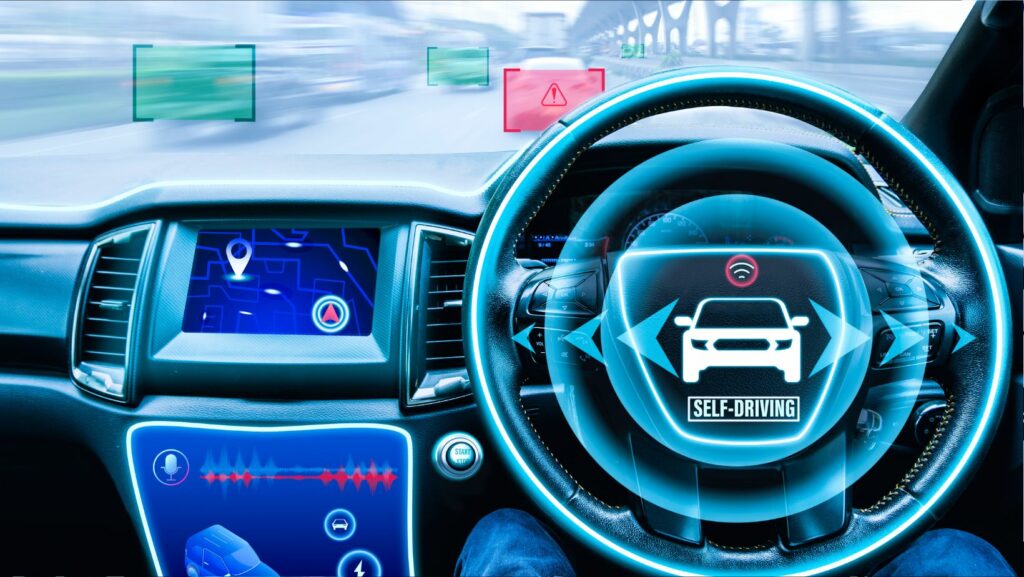AI in Automotive Industry
Artificial Intelligence (AI) plays a crucial role in revolutionizing the automotive industry, bringing about significant advancements that are reshaping the way transportation functions. From enhancing driver experience to improving road safety and reducing accidents, AI integration in vehicles is paving the way for smarter, safer, and more efficient automotive solutions.
This fusion of AI technology with traditional automotive engineering is propelling the industry into an era of unparalleled connectivity and automation, where vehicles can interact not only with each other but also with their surroundings. As AI continues to evolve, its transformative impact on the automotive sector is sure to redefine the future of mobility.
Benefits and Efficiency
- Enhanced Driver Experience: AI in automotive systems offers personalized driving experiences by adapting to individual preferences and providing seamless connectivity features.

- Improved Vehicle Efficiency: By optimizing performance based on real-time data analysis, AI helps enhance fuel efficiency, reduce emissions, and prolong vehicle lifespan.
- Predictive Maintenance: AI-powered algorithms predict maintenance requirements, enabling proactive servicing to prevent breakdowns and ensuring optimal vehicle performance.
- Enhanced Customer Service: AI-driven systems can improve customer service by offering personalized recommendations and solutions, enhancing overall customer satisfaction.
- Increased Operational Efficiency: AI streamlines manufacturing processes, supply chain management, and overall operations, leading to increased productivity and cost savings.
- Collision Avoidance Systems: AI technologies enable vehicles to detect potential collisions and take preventive actions, such as automatic braking or steering adjustments.
- Adaptive Cruise Control: AI-based systems monitor traffic conditions and adjust vehicle speed accordingly, maintaining a safe distance from other vehicles on the road.
- Driver Monitoring: AI-powered sensors monitor driver behavior and alert them to distractions or fatigue, enhancing overall safety on the roads.
- Enhanced Emergency Response: AI systems can quickly analyze and respond to emergency situations, providing timely assistance and improving overall emergency response efficiency.
- Improved Road Infrastructure: AI integration in vehicles contributes to smarter road infrastructure, including traffic management systems and road condition monitoring, promoting overall road safety.
AI Applications in Vehicle Manufacturing
In the automotive industry, AI in Automotive Industry plays a crucial role in enhancing various aspects of vehicle manufacturing. From automation in production lines to quality control and inspection, AI applications are transforming the way vehicles are produced, ensuring efficiency, precision, and advanced technological capabilities throughout the manufacturing process.
AI technology has revolutionized production lines in the automotive sector by streamlining processes and enhancing productivity. Through the integration of AI-powered robotics and automation systems, manufacturing plants can optimize production workflows, increase output, and reduce operational costs. AI algorithms enable machines to perform complex tasks with high speed and accuracy, leading to faster assembly processes and improved manufacturing efficiency.
Quality control and inspection are critical stages in vehicle manufacturing to ensure that products meet stringent standards and specifications. AI systems are deployed for real-time quality assessment, defect detection, and predictive maintenance in production plants. By utilizing machine learning algorithms and computer vision technology, AI enables automated inspection of components, surfaces, and final products, minimizing human error and enhancing overall product quality. This ensures that each vehicle meets the required safety and performance standards before it reaches the market.
AI-Driven Innovations in Vehicle Design
Artificial Intelligence (AI) is revolutionizing the automotive industry, particularly in enhancing vehicle design through innovative technologies. Here are two key areas where AI is making significant strides:
AI in Automotive Industry plays a crucial role in the development of Advanced Driver-Assistance Systems (ADAS) in modern vehicles.  These systems leverage AI algorithms to enhance driver safety and comfort by providing features such as adaptive cruise control, lane-keeping assistance, and automatic emergency braking. By analyzing real-time data from sensors and cameras, AI-powered ADAS systems can alert drivers to potential hazards, assist in parking maneuvers, and even intervene to prevent accidents.
These systems leverage AI algorithms to enhance driver safety and comfort by providing features such as adaptive cruise control, lane-keeping assistance, and automatic emergency braking. By analyzing real-time data from sensors and cameras, AI-powered ADAS systems can alert drivers to potential hazards, assist in parking maneuvers, and even intervene to prevent accidents.
The integration of AI in Automotive Industry in autonomous vehicles technology is reshaping the future of transportation. Self-driving cars rely on AI algorithms to interpret complex environmental cues, make real-time decisions, and navigate roads safely. Through machine learning and neural networks, autonomous vehicles can continuously improve their driving capabilities, adapt to changing conditions, and enhance overall road safety. AI-driven innovations are propelling the automotive industry towards a future where fully autonomous vehicles will redefine transportation norms.

